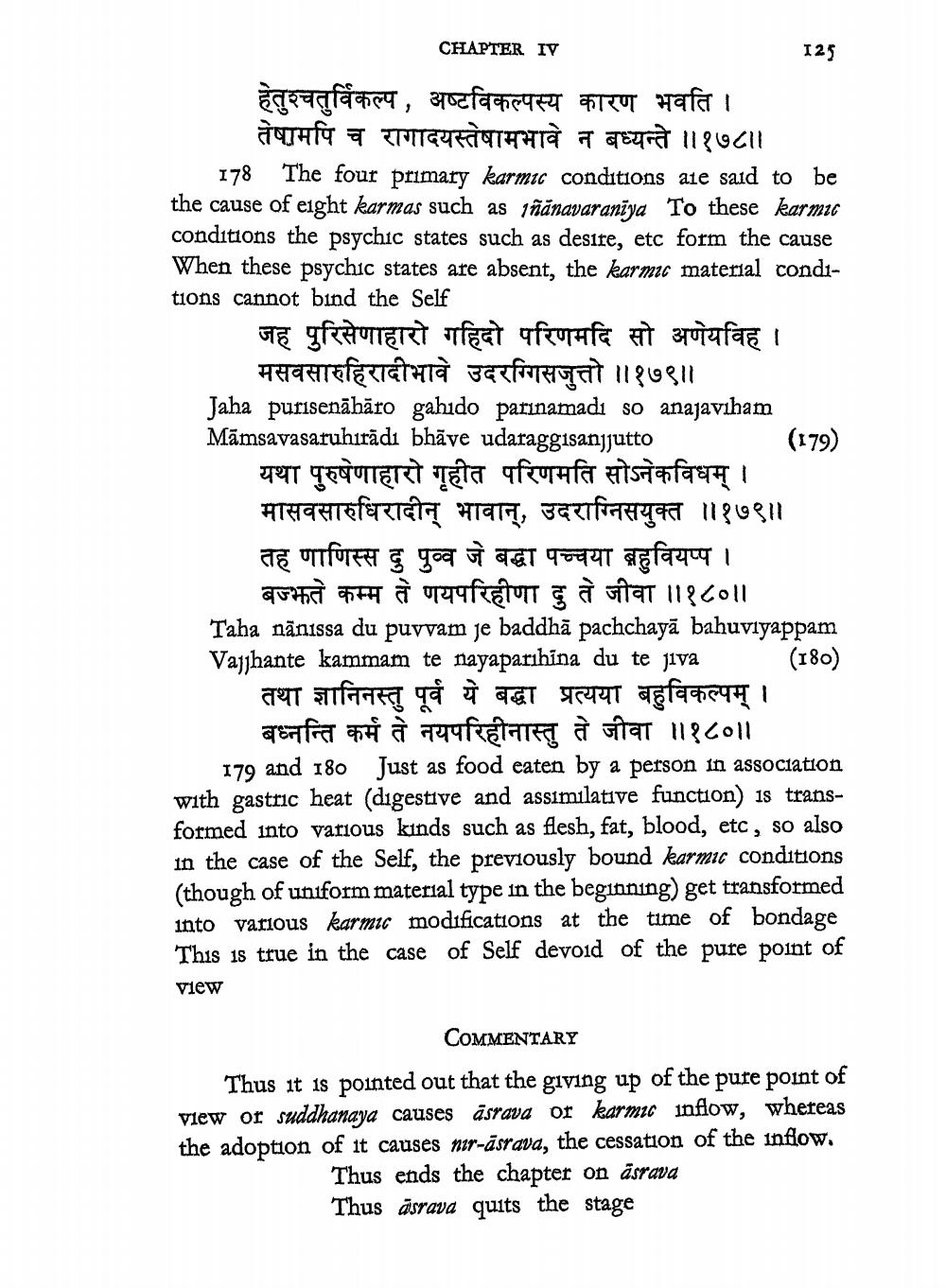________________
CHAPTER IV
125
हेतुश्चतुर्विकल्प , अष्टविकल्पस्य कारण भवति ।
तेषामपि च रागादयस्तेषामभावे न बध्यन्ते ॥१७८॥ 178 The four primary karmic conditions ale said to be the cause of eight karmas such as ñänavaranżya To these karmic conditions the psychic states such as desire, etc form the cause When these psychic states are absent, the karmic material conditions cannot bind the Self
जह पुरिसेणाहारो गहिदो परिणमदि सो अणेयविह ।
मसवसारुहिरादीभावे उदरग्गिसजुत्तो ॥१७९॥ Jaha purisenāhāro gahıdo parinamadı so anajaviham Māmsavasaruhırādı bhāve udaraggisanjjutto (179)
यथा पुरुषेणाहारो गृहीत परिणमति सोऽनेकविधम् । मासवसारुधिरादीन् भावान्, उदराग्निसयुक्त ॥१७९॥ तह णाणिस्स दु पुव्व जे बद्धा पच्चया बहुवियप्प ।
बज्झते कम्म ते णयपरिहीणा दु ते जीवा ।।१८०।। Taha nānissa du puvvam je baddhā pachchayā bahuviyappam Vajjhante kammam te nayaparıhina du te jiva (180)
तथा ज्ञानिनस्तु पूर्व ये बद्धा प्रत्यया बहुविकल्पम् ।
बध्नन्ति कर्म ते नयपरिहीनास्तु ते जीवा ॥१८०॥ 179 and 180 Just as food eaten by a person in association with gastric heat (digestive and assimilative function) is transformed into various kinds such as flesh, fat, blood, etc, so also in the case of the Self, the previously bound karmic conditions (though of uniform material type in the beginning) get transformed into various karmic modifications at the time of bondage This is true in the case of Self devoid of the pure point of
view
COMMENTARY
Thus it is pointed out that the giving up of the pure point of view or suddhanaya causes äsrava or karmic inflow, whereas the adoption of it causes nir-asrava, the cessation of the inflow.
Thus ends the chapter on äsrava Thus äsrava quits the stage




